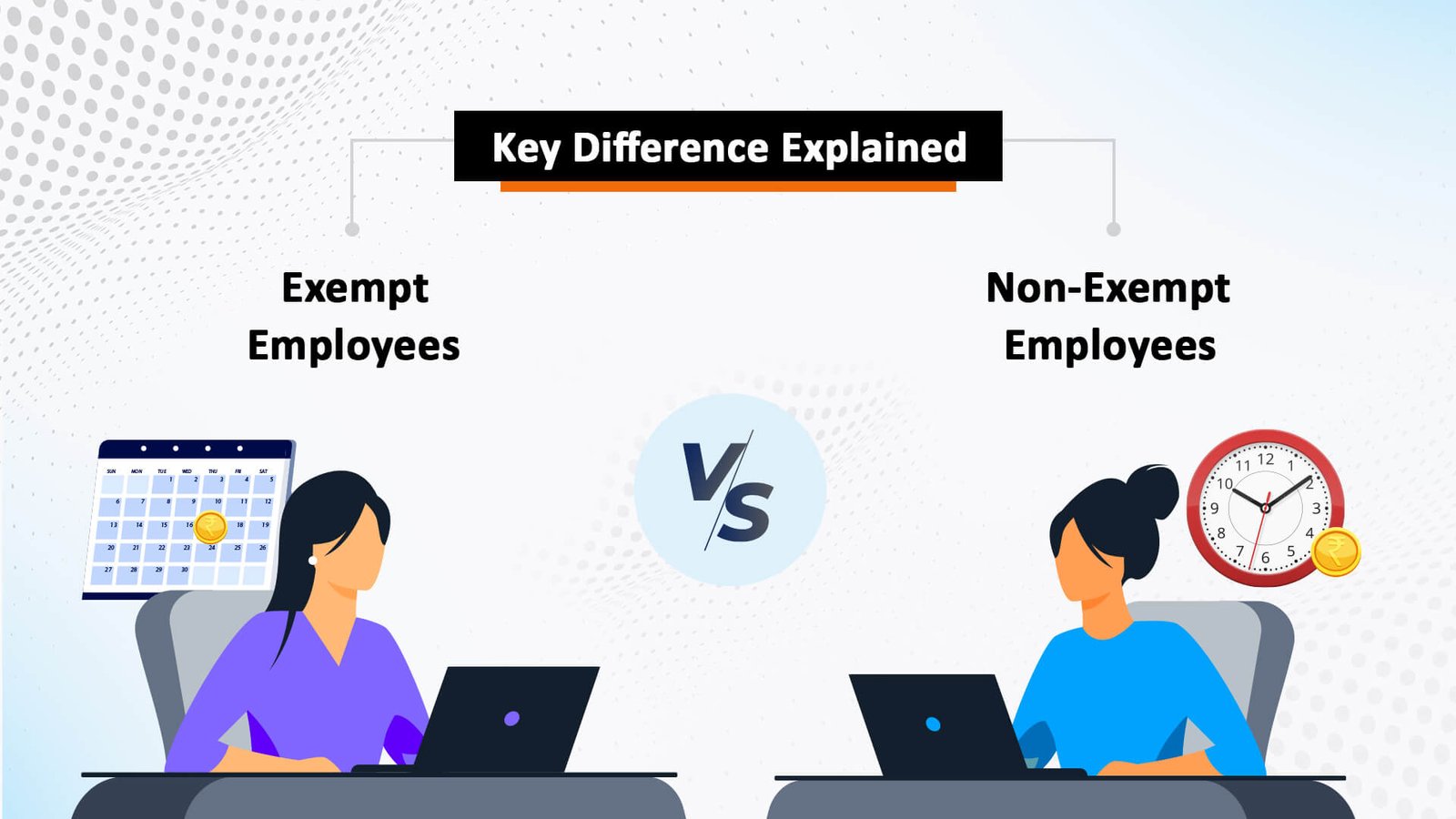Labor laws have been around for a long time to safeguard employees from hazardous working environments, unjust treatment, and discrimination in the workplace. Employers who disregard these State of Idaho labor laws can be seriously punished.
In the US, companies need to abide by federal and state labor laws—and although state regulations tend to vary, Idaho’s laws are pretty straightforward and standardized as per federal laws.
In Idaho, employers must abide by U.S. Department of Labor labor laws as well as those of the Idaho Department of Labor. Let’s check what laws employers need to follow.
Standard Working Hours
By adhering to federal regulations, Idaho guarantees that workers are paid adequately while giving employers clear and consistent regulations on wage and hour compliance.
Minimum Wages
Idaho conforms to the federal rate of $7.25 per hour, as stipulated in the Idaho Minimum Wage Law. This minimum rate covers most employees throughout the state, although some groups of workers have exemptions. Such exemptions are bona fide executive, administrative, or professional employees; domestic workers; outside salespeople; seasonal nonprofit camp workers; and certain categories of minors and agricultural workers.
Employers may pay a training wage of $4.25 an hour to workers under 20 years of age, but only during the initial 90 consecutive days of their employment.
In certain situations, employers with specific permits from the U.S. Department of Labor’s Wage and Hour Division can also pay employees with disabilities below the minimum wage.
Overtime Laws
As per Idaho labor laws for salaried employees, overtime is controlled by the federal Fair Labor Standards Act (FLSA). According to these regulations, workers who put in more than 40 hours in a given workweek must be paid an overtime rate of 1.5 times their normal hourly rate.
Overtime is determined with Idaho labor laws overtime solely by the number of hours worked during a week. Employers are responsible for ensuring proper tracking of employee hours to remain in compliance and prevent possible wage disputes.
Tipped Minimum Wages
In Idaho, employers can pay tipped employees an hourly base wage of $3.35, as long as the employee’s actual tips received, when added to this base wage, meet or surpass the state minimum wage of $7.25 per hour.
Meal And Rest Breaks
Idaho labor laws breaks do not mandate employers to offer meal or rest breaks, paid or unpaid. That being said, enterprises subject to the federal Fair Labor Standards Act (FLSA) must comply with federal regulations if they decide to grant breaks.
The FLSA states that any break under 20 minutes in duration will need to be compensated. Employers would be wise to inform employees of their break policies clearly and adhere to those federal standards to prevent possible wage claims.
Leave Laws
Workers periodically require extended periods of time away from work to address serious illness, care for a family member, or convalesce.
| Type of Leave | Description | Eligibility / Notes | Administration / Rules |
| FMLA Leave | Provides eligible employees up to 12 weeks of unpaid, job-protected leave during 12 months. | Employees must have worked for the company >12 months, logged at least 1,250 hours in the past 12 months, and be employed by an organization with ≥50 employees within 75 miles. | Administered by the Idaho Controller’s Office; tools are available for employers to report eligibility. |
| Military Leave | Unpaid leave for employees called to active duty in the armed forces or National Guard. | Employees are protected under USERRA against termination without cause for up to one year after returning and must be reinstated to their original position. | Governed by USERRA regulations. |
| Sick Leave | No state-mandated sick leave requirements. | Employers may set their own policies; they must be disclosed in employment agreements or company policy. | Policy determined by the employer. |
Child Labor Laws
As per Idaho labor laws for minors, they should be at least 12 years of age before they can be legally employed. Minors aged under 14 years are also restricted from working in some industries such as mines, factories, workshops, stores, telegraph or telephone establishments, laundries, restaurants, hotels, and enterprises dealing in merchandise or message transmission.
Younger children can be employed in approved work during school holidays of 2 weeks or more, and can do voluntary work for their public school for 10 hours a week with parental permission.
- They cannot, however, work while school is in session or after 9 PM and before 6 AM.
- The children who are 14 and 15 can work only during term time if they fulfill certain academic conditions. They can only work for 9 hours a day and 54 hours a week, and working from 9 PM to 6 AM is prohibited.
All children below 16 years are banned from the dramatic arts and cannot be hired for immoral or dangerous workplaces, like bars or casinos. They are also not allowed to handle or serve alcoholic drinks. Employers can face fines and imprisonment for violating child labor laws.
Employee Compensation
Employers in Idaho must pay wages on a regularly scheduled payday, but state law doesn’t require them to be paid a certain number of times per year.
Wage deductions can be made by employers in the following circumstances:
- Court-ordered garnishments
- Deductions authorized by the employee
The maximum amount a wage can be garnished is the lesser of:
- 25% of the employee’s disposable weekly earnings, or
- The total by which disposable income is more than 30 times the federal minimum wage ($7.25).
For workers paid on a biweekly or monthly basis, the Idaho Labor Commissioner recalculates this formula to set the amount for allowable garnishment.
Exemptions from these limitations are:
- State or federal tax obligations
- Bankruptcy judgments
- Dependent support garnishments, which may reach up to 50% of disposable income
Taxes In Idaho
Idaho has a flat individual income tax rate of 5.8% applicable to all personal income. The state also has a 5.8% corporate income tax on business revenues.
Do You Want To Simplify Payroll? Generate Accurate Paystubs Today!
Calculating wages, deductions, overtime, and leave can take a long time and be error-prone, posing risks to employees and the company. HR and finance departments are frequently confronted with the task of efficiently processing payroll and ensuring accuracy and compliance.
Payroll delays, deduction errors, or improper record-keeping can cause financial losses and also result in loss of employee trust without an efficient system in place.
A free paystub generator provides an effective solution by streamlining payroll computations and producing precise, professional paystubs. The generators enable HR and finance personnel to generate pay statements instantly with all the necessary information.
By using Stub Creator, HR and finance teams can automate payroll processes, save time, and devote more time to strategic plans instead of administrative work. Overall, automated paystub generation makes payroll management a quicker, more secure, and more efficient process.
Curious Minds Also Ask
How many hours can you work in Idaho without a break?
Idaho law does not mandate meal or rest breaks; any breaks under 20 minutes must be compensated if provided.
What are Idaho’s labor laws?
Idaho labor laws cover minimum wage, overtime pay, child labor laws, wage payment terms, leave policies, and workplace protections that largely follow federal regulations.
How many days in a row can you work without a day off in Idaho?
Idaho does not impose limits on the number of consecutive workdays.
Is overtime after 8 hours or 40 hours in Idaho?
Overtime is calculated based on working 40 hours within seven days, not per day.
What is the tip law in Idaho?
Tippers may receive hourly wages of $3.35; however, their total earnings, including tips, must meet or surpass minimum wage levels in order to comply with federal labor standards.
Is 32 hours considered full-time in Idaho?
Idaho does not specify the definition of full-time employment; typically, 30-40 hours per week would qualify as full-time.
Is PTO required in Idaho?
PTO (paid time off) isn’t mandatory in Idaho.
Is holiday pay mandatory in Idaho?
Idaho does not mandate holiday pay.
What is the minimum salary to be exempt in Idaho?
Exempt employees must comply with federal FLSA criteria, including meeting a minimum weekly salary requirement of $684.
Does Idaho have paid sick leave?
Idaho does not mandate paid sick leave.
What is the Whistleblower Act in Idaho?
The Whistleblower Act protects employees who report unlawful or unsafe activities from being punished in any way for doing so.
Do you have to pay overtime in Idaho?
Yes, overtime must be paid out for hours worked over 40 per week.
What’s the minimum wage in Idaho in 2025?
Idaho’s minimum hourly wage in 2025 will be $7.25.
Is Idaho an at-will state?
Idaho is an at-will employment state.
What is the retaliation law in Idaho?
Employers cannot retaliate against employees who report labor law violations or unsafe working conditions, as this would violate employment law and result in unlawful acts against workers.
FAQ's
What is a livable wage in Idaho?
+
Livable wages differ by region but typically surpass state minimum wages.
Are lunch breaks required in Idaho?
+
Idaho law does not mandate lunch breaks.
Can employees discuss wages in Idaho?
+
Employees have the legal right to negotiate their wages.
What is the Fair employment Practices Act in Idaho?
+
The Fair Employment Practices Act prohibits employment discrimination based on race, color, religion, sex, national origin, disability or age.
Does Idaho require PTO?
+
PTO (paid time off) is not mandatory.





